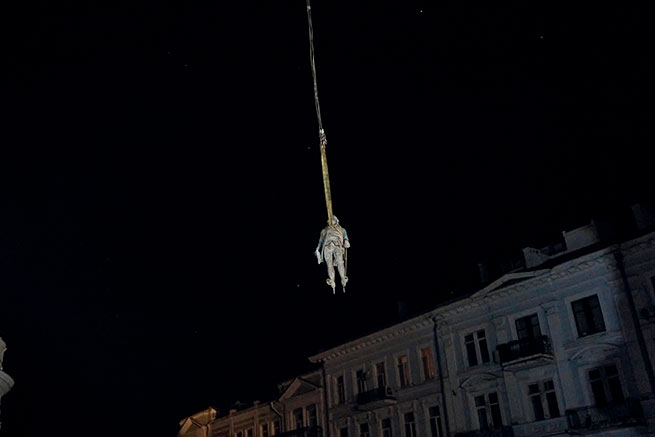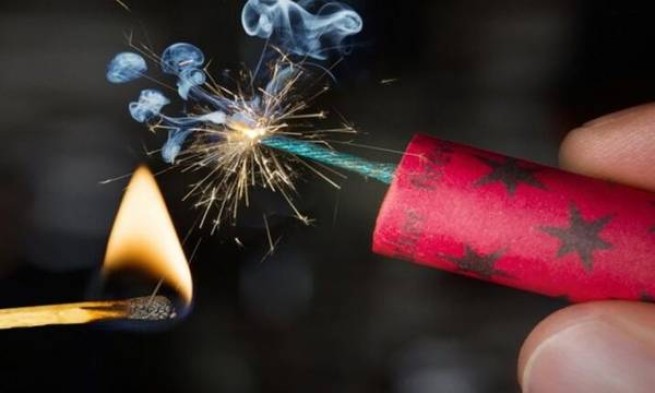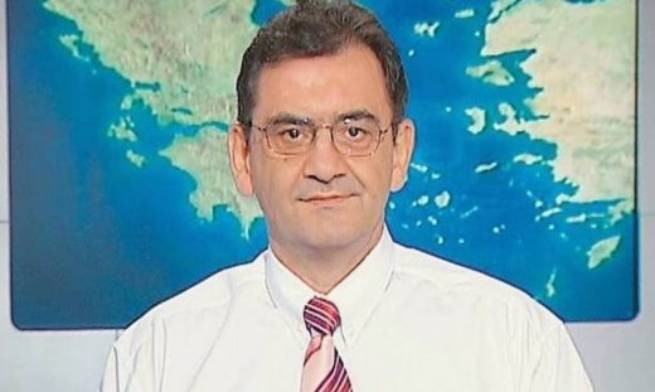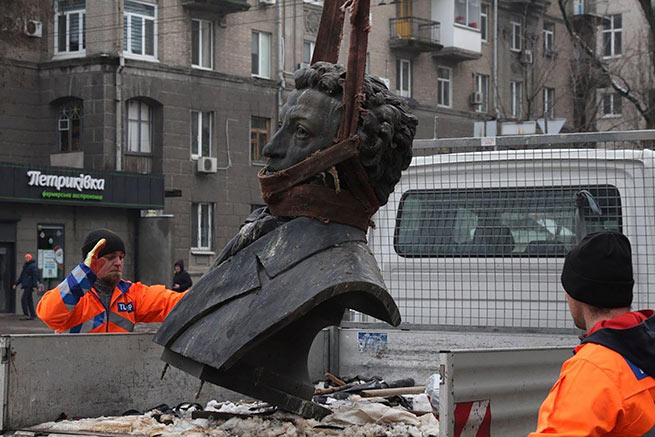The Greek edition of Kathimerini published an article discussing the issue of the ban on Russian culture in Western countries and, in particular, in Greece.
On the occasion of the suspension of the publication of Elizabeth Gilbert’s book set in Russia, “K” is discussing the issue of the ban on Russian culture with Ukrainian modernist Andriy Savenko, MOMus director Maria Tsantsanoglu, Professor Alexandra Ioannidou, and writer and translator Dimitris V. Triantafillidis.
This is the message of Elizabeth Gilbert, the author made famous by her book Eat, Pray, Love, which was adapted for cinema by Ryan Murphy and starred Julia Roberts and Javier Bardem. Based on a true story, the upcoming film Snow Forest, according to the Guardian, is about a family of religious Russian fundamentalists who escaped Stalin’s terror in the 1930s by choosing to self-isolate in a remote corner of Siberia for nearly half a century.
The question that was raised from the very first moment
However, this is not the first time this issue has been raised since the beginning of the war – although in the case of Elizabeth Gilbert we seem to be going a step further. It’s not just that we impose sanctions – at least in the field of culture – on everything that is a Russian state cultural institution, such as, for example, the Bolshoi Ballets. The fact is that now the culture of nullification is spreading to everything that can be connected, even if only in the form of a scene, as in Gilbert’s book, with Russia.
The Munich Philharmonic Orchestra, K reported, fired its star conductor Valery Gergiev for refusing to condemn the invasion of Ukraine or distance himself from his close friend Vladimir Putin. He was forced to step down as honorary chairman of the Edinburgh Festival. Milan’s La Scala Theater began its creative season with Pushkin’s opera “Boris Godunov” and caused a storm of controversy. The Royal Opera House in London has ceased cooperation with the Bolshoi Ballets.
Russia is opening up to the West and is stepping up its offers to buy the copyrights of English-speaking authors for translation into Russian. In response, the West is closed to Russian culture…
The common starting point was the decision to Cancellation of “Swan Lake” show Bolshoi Theater in the Athens Concert Hall. According to the then statement of the Greek Ministry of Culture (Lina Mendoni approx. edition), any event related to Russian cultural organizations is now suspended. The show was canceled a storm of indignation and a laconic commentary from the Russian embassy in Athens, which called it another step “in line with the anti-Russian policy of the West.” Ministry services, according to another K report, informed the supervised institutions of the need to suspend “any cooperation, planning or discussion of cooperation” with Russian cultural organizations.
Putin’s Russia is at war with Ukraine, the West is at war (with or without quotes) with the Russian President, interesting, we are also at war with Russian culture? Could a wave of Western anti-Russian campaign sweep away the culture of an entire country? Can Dostoevsky, Tolstoy, Chekhov, Shostakovich, Rachmaninov, Tchaikovsky, Malevich, Kandinsky or Popova be put on fire because of a declaration of war by their compatriot?
Russia, for its part, is opening up to the West and increasing offers to buy copyrights from English-language authors to translate into Russian, according to the Guardian. According to the newspaper, English-language authors of crime, romance and fantasy novels received unexpectedly tempting offers for their books last spring, but some of them are still unwilling to take Russian money because of the war in Ukraine.
As neuroscience professor and author Kenan Malik writes in the Guardian, few have even read a draft of Gilbert’s book, which appears to be neither propaganda nor support for Russian nationalism, let alone Vladimir Putin. “What often leads to self-censorship today is more of a sense of moral obligation not to upset your audience, which Gilbert expressed so vividly in her Instagram video.”
“The war was also cultural from the start”
Removal of the statue of Pushkin from the city of Dnepr. (© Dnipro Regional Administration via AP)
Are we talking about collateral damage? Shouldn’t all these issues – the abolition of eternal civilization – have already been decided? Andrey Savenko, professor of modern Greek philology at the Kyiv National University, in an interview with K, distinguishes, according to him, two sides of this issue – internal (Ukrainians) and external (Russians).
“Vladimir Putin has been using culture as a weapon in his policy against Ukraine since 2014. Not only did he challenge the language, history, and roots of Ukrainians, but he also wanted to include all of Ukrainian culture in his new plans to revive the Russian Empire, saying that the West had created Ukraine as anti-Russia.” President of the Hermitage Museum in St. Petersburg, on the eve of the invasion of February 2022, published an article acknowledging that Russia’s war is cultural in nature, the same was recently done with a letter from Russian rectors supporting Putin’s war against our country, which makes me wonder: is culture involved in the bloodshed or not?“- writes the Ukrainian neo-liberal.
“Recently, a conference was held in Moscow with the participation of Russian – and not only – neo-Hellenes with the main topic “Greeks in Russia”. Here the second question arises: shouldn’t someone have mentioned the tragic events in Mariupol, the center of Hellenism on the Sea of Azov?” – says Adriy Savenko.
“I respect the decision of Elizabeth Gilbert not to publish her book after the objections of the Ukrainians, – says a Ukrainian professor from Kyiv in our conversation. – On the other hand, let’s think about this: can today a student from Irpin, Kharkov, Kiev, Zaporozhye, Kherson read a poem by Mikhail Yuryevich Lermontov about the Battle of Borodino in the 19th century and the victory of Russia? How to teach Bulgakov without emphasizing that he was anti-Ukrainian and anti-Semitic? Is it possible that on the day of the explosion of the Novaya Kakhovka dam, the UN celebrated – albeit planned – the Day of the Russian Language?
“Does culture ultimately contribute to the bloodshed?”
Andrei Savenko returns to our discussion of Vladimir Putin’s culture war, as well as the willful blindness of the West, which, he says, is trying to understand what is going on in the head of a Russian citizen living in an authoritarian society. Our interlocutor admits, however, that “Words can tire, but people and weapons kill.” “The Russian president, however, in the model of the new Soviet citizen that Stalin wanted to build, suppresses all ethnic cultures that exist within Russia in order to build a new, great and united Russia. These cultures are losing their language, parts of their history. I think that we should see how Russian writers today serve such a cultural policy, and, on the other hand, support those who left the country to save themselves, just as we should do the same with regard to cultures that are suppressed inside Russia.
The Ukrainian neo-liberal describes even more internal problems in his country. “I always remember the Latin proverb: “When the cannons rumble, the Muses are silent.” There are many Ukrainians who find it difficult to listen to Russian music, watch Russian films, read Russian books, especially if there are people at the front. It is even more difficult for Russian-speakers, not because they are afraid that our compatriots will attack them, but because they do not want to speak the language of the enemy”– Andrey Savenko concludes.
“Collective cancellation is irresponsible”
“What is happening with the collective abolition of Russian culture by the West is superficial and irresponsible, – says “K” Maria Chanchanoglu, director of the Russian avant-garde collection of the Museum of Contemporary Art MOMus-Costakis. – The Cold War ended many years ago. At that time, Sovietology flourished in the West, the study of Russian culture, books were written and films were made about Russia. There was a creative approach in these contradictions. What is happening now with Ukraine does not mean that culture should be a victim. We cannot exclude artists, as happens, for example, with the Russian Avant-Garde collection of Kostakis, who created, believing in a better world. And modern Russian culture is now becoming a victim of Putin’s aggression, but the West is to blame.” she adds.
“Modern Russian culture is now falling victim to Putin’s aggression, but this is the West’s mistake.”
MOMus in Thessaloniki, as its director told us, has ceased all cooperation, according to directive Ministry of Culture, with Russian institutions and no longer receives sponsorship money from Russian institutions.

Seizure of the monument to Catherine the Great in Odessa. (©AP Photo/LIBKOS)
And the professor of the Department of Balkan, Slavic and Oriental Studies at the University of Macedonia, the famous translator Alexandra Ioannidou, says that she “completely against any exception. Culture is the main pillar of peace between peoples”– she notes in an interview with “K”, calling this attitude of the West “suicidal”.
“These steps are very convenient for the Russian president, since they serve as a pretext for him to block oppositional Russian writers, who in any case are attacked and persecuted.”
“It goes without saying that Putin is in no way responding to the democratic demands of the West. But how can contemporary Russian culture be ruled out, especially when it tries to create in a regime like Putin’s? – Emphasizes Alexandra Ioannidou. – EThese steps are very convenient for the Russian president, as they serve as a pretext for him to block opposition Russian writers, who have been targeted and persecuted in any case. Art says it is a vector of resistance”.
Western talk about … the abolition of Russian culture, according to Alexandra Ioannidou, “are in the logic of the Soviet Union, this is an insane approach. If we do not give a platform to all those who have found the courage to speak out in such difficult circumstances, then to whom will we give it?” he asks.
“Putin is a real destroyer of Russian culture.”
Another interesting point is raised by the journalist and translator from Russian Dimitris V. Triantafillidis, who recently published books “Russia is the great enemy of the West” And “Russia’s imperial nostalgia is a Eurasian temptation” (both published by Epikentro): “What the West is trying to do by blocking Russian culture is nothing compared to the suffering that Vladimir Putin himself inflicts on the culture of his country. The persecution of writers, the closure of theaters, the cancellation of exhibitions, even the suspicion that the artist is a “foreign agent” according to the law he passed. And he does something even worse: in many bookstores, when a book is owned by an author labeled as “foreign agent”, the cover is closed with a black bag, accompanied by a white sticker informing about … who this author”.
“Putin’s policy is based on three pillars: Russian nationalism, Orthodoxy and Asian autocracy.”
Dimitris V. Triantafillidis notes that the new cultural policy of the Russian president is based on three pillars: “Russian nationalism, Orthodoxy and Asian autocracy”. These are the positions that he adopted from the ideologist of Great Russia Vladislav Surkov and the ideology “deep Russian state”. He gave millions to Bishop Tikhon, Georgy Aleksandrovich Shevkunov, to create multimedia exhibitions in this context. He seized “Holy Trinity” Andrei Rublev of the Tretyakov Gallery in Moscow to give it… to his beloved Russian Patriarchate, who serve him in establishing a new Russian ideology, risking the safety of this great work in the process.”
Alexandra Ioannidou seems to agree with this, noting that there has been a shift in the interpretation of Russian classics in the academic environment. “Now they are all revered as deeply nationalistic and Christian writers, which is far from reality.”
“Ukrainians, for obvious reasons, seek to de-Russify themselves – this is where blood is shed. But what the West is doing, in my opinion, is stupid”concludes Dimitris V. Triantafillidis.
The opinion of the author may not coincide with the opinion of the editors.
Published cathimerini
Translation of “athenian news”







More Stories
What blew up the Crimean Bridge in 2022
There will be no forced return of Ukrainian men from abroad; the e-office for those liable for military service will start working on May 18
Will Europe forcibly return Ukrainian draft dodgers?